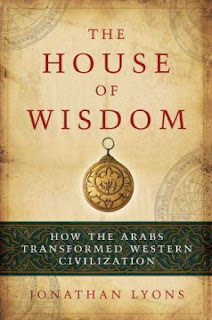“Seven years before the earthquake that shook the moral foundations of Crusader Antioch, Adelard surveyed the world around him and pronounced it rotten.
– Read an excerpt from "The House of Wisdom"”
 By John Freely
By John FreelyKnopf, 303 pages, $27.95
Mr. Freely begins with the ancient Greek philosopher Thales and concludes in the 17th century with Isaac Newton and the Scientific Revolution.
Though holding thousands of Greek and Persian manuscripts, the House of Wisdom was no inert repository. Beginning under al-Mansur and continuing for two centuries, its collections – containing virtually the entire corpus of Greek scientific and philosophical literature – would be studied, commented upon and translated, with ever increasing refinement, into Arabic. These translations, later rendered into Latin and Hebrew, would have a decisive effect on Western thinkers, beginning with the Scholastic theologians of medieval Paris and Bologna and culminating in the revival of Greek learning in the Renaissance.
Mr. Freely includes lucid diagrams, together with magnificent color plates taken from illuminated manuscripts. But his account is cursory; it has a potted feel, as though drawn from lecture notes. Worse, it is marred by many errors...
 by Jonathan Lyons
by Jonathan LyonsBloomsbury, 248 pages, $26
Jonathan Lyons tells the same story in a far more reliable way. In "The House of Wisdom," he shapes his narrative around the travels of the little-known but extraordinary Adelard of Bath, an English monk who traveled to the East in the early 12th century and learned Arabic well enough to translate mathematical treatises into English.
Mr. Lyons's narrative is vivid and elegant, though marred at times by tendentiousness. Medieval Muslims, as he says, did find Europeans uncouth as well as brutal. (Though Mr. Lyons doesn't mention it, medieval Muslims were shocked to realize that "the Franks" were ignorant even of such refinements as underarm deodorants.) Mr. Lyons is right to remind us of the spectacular savagery of the Crusaders who waded knee-deep in blood through the Holy Sepulchre and of the embarrassing inability of Europeans to tell time once the sun had set. Istanbul University Library/The Bridgeman Art Library
Istanbul University Library/The Bridgeman Art LibraryA 16th-century depiction of astronomers at the Galata observatory in Istanbul.


No comments:
Post a Comment